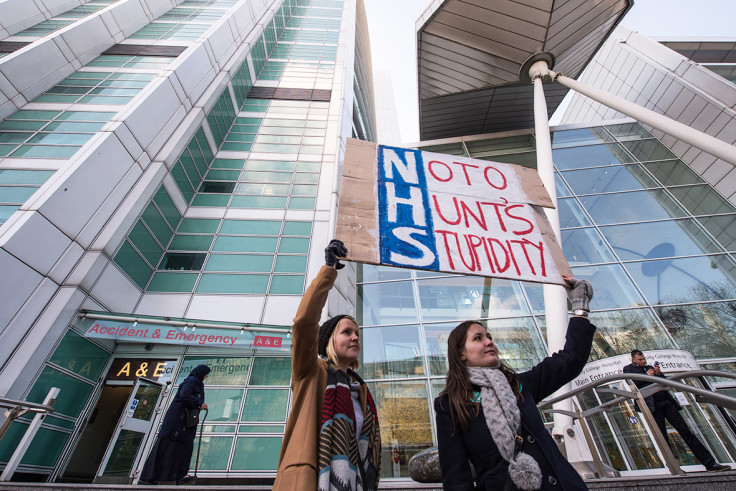Junior doctors' contract: Government faces summer of discontent after BMA members reject offer
BMA shook hands on deal in May but junior doctors and medical students have voted against terms.

Junior doctors and medical students who are members of the British Medical Association (BMA) have voted against a new contract hailed just weeks ago by health secretary Jeremy Hunt as a "significant step forward".
The government and the BMA reached an agreement over a new contract in May after back-to-back talks at conciliation service Acas. The main changes the union agreed to at the time were that basic pay rise was to be reduced from 13.5% to between 10% and 11%, weekend pay structure was changed and a reduction in pay for night shifts.
But around 58% of the BMA's 40,000 members rejected the offer by a margin of 58% to 42%. The result led to the resignation of the union's junior doctor Johann Malawana after he felt it would be "dishonourable and untenable" to remain in the post.
It is with regret that I announce my resignation today following the ballot result in the junior doctor referendum pic.twitter.com/6QSTCy2zzH
— johannmalawana (@johannmalawana) July 5, 2016
In a letter to members, he said that he hoped the contract agreed in May "would be acceptable to our amazing membership", before blaming the government for its capitulation.
"However, I believe the fundamental breakdown in trust caused by the government's actions over the last five years has resulted in a situation where no solution is possible, particularly when a government is so keen to declare victory over front line staff."
The result means doctors and students risk having the contract imposed on them, a move that will likely spark industrial action similar to the historic all-out strike in April.
© Copyright IBTimes 2024. All rights reserved.






